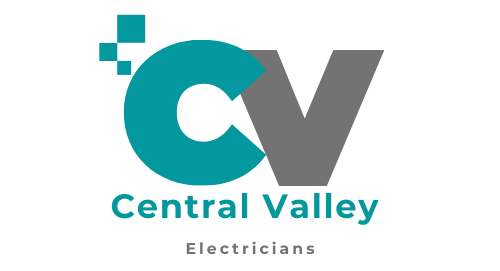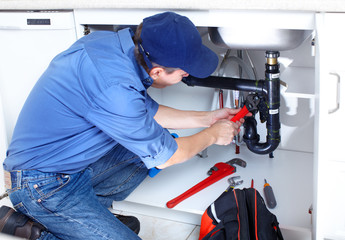Plumbing is more than just toilets and pipes; it’s an intricate system essential for providing water supply and waste removal in buildings. It is regulated by local and federal standards to ensure safety, health, and environmental protection.
A home’s plumbing system starts with a main water line connected to the municipal water supply or private well. From there, water flows into fixtures equipped with shut-off valves for individual control. Reach out Plumbing Express, Inc. for comprehensive assistance.
Plumbing is a complicated system that transports water and waste in and out of homes and buildings. Its main purpose is to supply clean, potable water and remove waste in a safe and efficient manner. The process of installing a plumbing system involves several stages and requires the expertise of licensed professionals to ensure compliance with local codes and standards.
New construction plumbing begins with the rough-in plumbing phase, which occurs before the concrete foundation is poured. During this phase, the plumbing team marks where supply and wastewater lines will be installed. They also install a meter to measure water consumption and ensure that the home is receiving an adequate supply of freshwater.
Next, the plumbing team installs the home’s main water line. This line must be carefully positioned to avoid leaks and promote proper pressure. It must also be connected to a water heater to provide hot water to the household.
Once the main water line is in place, plumbers install the rest of the home’s plumbing fixtures. This includes toilets, showers, faucets, and sinks. Plumbers may also install appliances like washers and dryers. Finally, they connect the drains to the sewer line or septic tank.
Another important part of the plumbing installation process is ensuring that gas lines are properly positioned and sealed. This ensures that household appliances run safely and efficiently. Finally, the plumbing team tests and inspects the completed plumbing system to ensure that it meets all local codes and standards.
The plumbing industry is regulated at both the federal and state levels. Federal regulations cover topics like water quality and lead content in pipes, while state regulations focus on specific issues like seismic safety in earthquake zones. In addition to these regulatory bodies, many states have their own certification and licensing programs for plumbers.
The plumbing system is complex and plays a crucial role in everyday life. It’s essential that homeowners and builders work with licensed, professional plumbers to ensure the integrity of the pipework and prevent costly repairs down the road. By understanding the plumbing installation process and its underlying regulatory framework, you can make better decisions about your own home’s pipes.
Maintenance
Plumbing is a vital part of every building, providing clean water and removing waste in a safe and hygienic way. It involves a complex network of pipes, fixtures, and appliances that connect to and deliver water and sewage throughout the structure. Regular maintenance is essential to ensure that these systems work properly. Failure to do so can result in a number of issues, including clogged drains, water damage, and health risks. A poorly functioning plumbing system can also increase utility bills and lead to costly repairs.
The plumbing maintenance process includes visual inspections, cleaning, and flushing of pipes and fixtures to prevent clogs, leaks, and mineral buildup. It can also include testing for water pressure and temperature to ensure that they are within the recommended ranges. In addition, it can include checking for corrosion and ensuring that all valves are working properly.
A comprehensive plumbing maintenance program should also include educating facility staff about how to protect the plumbing system. This can help reduce the risk of plumbing problems, such as clogs and water wastage, and extend the lifespan of pipes and fixtures. It can also help reduce the cost of plumbing maintenance by preventing unnecessary repairs and replacements.
In addition to maintaining and inspecting the plumbing system, maintenance should also include educating staff about proper pipe installation and the safety of using gas lines. In addition, it is important to keep in mind that the International Building Code (IBC) requires all plumbers to follow strict standards when installing plumbing systems. Compliance with the IBC helps ensure that plumbing systems are safe and reliable, which minimizes the risk of fire and other hazards.
Leaky pipes, clogged toilets, and overflowing drains are just a few of the many plumbing emergencies that can occur in commercial facilities. When these issues are ignored, they can lead to expensive repairs and disruptions in operations. Regular maintenance can reduce the likelihood of these issues and allow staff to focus on core business activities. In addition, implementing a routine plumbing maintenance plan can help reduce energy costs by reducing water wastage and improving efficiency.
Repair
Plumbing repair involves fixing or restoring parts of a water supply system, like pipes and fixtures. This can include repairing or replacing leaks, clogs, and broken components. Skilled plumbers use a variety of techniques and tools to diagnose problems and implement effective solutions, aiming to prevent water damage and maintain the overall functionality of a plumbing infrastructure.
If you suspect a problem with your plumbing, it’s important to contact a professional as soon as possible. This will help to minimize the damage and avoid costly repairs in the future. Professional plumbers can also advise you on the best ways to care for your plumbing and provide tips on how to reduce the risk of future problems.
Most homeowners will need to call a plumber at some point. Common issues include slow drains, clogged toilets, and inoperable water heaters. However, some issues may be more severe, such as a burst pipe or sewer backup. When these issues occur, it’s crucial to seek professional help immediately to avoid further damage and high-cost repairs.
A professional plumber will inspect your plumbing system to determine the source of the problem and recommend the best course of action. They will use a range of tools to assess the situation, including video cameras and hydro-jetting equipment. They can also take a sample of your water to test for contaminants and evaluate the overall health of your pipes.
Leaking pipes are a major concern, as they can lead to water damage and mold growth. Most leaks can be fixed with simple plumbing repairs, such as epoxy putty or caulking. Before beginning the repair, it’s important to turn off the water supply valve to the affected area. It’s also a good idea to clean the area and remove any dirt or debris that could interfere with the repair.
If you have older pipes, it’s a good idea to replace them with newer, more durable models. Older pipes are more likely to leak or rupture, and they can also contain dangerous materials such as lead. In addition to installing new pipes, skilled plumbers can also replace outdated fixtures and appliances with energy-efficient options. This can help to lower your energy bills and make your home more environmentally friendly.
Regulation
The plumbing industry is highly regulated to ensure safe and reliable water systems. Building codes, health code, and safety standards govern materials, installation techniques, and more. Plumbers must follow designated design standards and install key safeguards like backflow prevention devices to avert contamination. These regulations protect people from dangerous pathogens and provide a technical framework for efficient, sustainable plumbing systems.
Plumbing regulations are constantly evolving to promote safety and growth in the industry. Many of these changes require new training and certifications for plumbers to stay current. Others encourage conservation tactics, such as requiring low-flow fixtures that help reduce energy consumption. The result is a more environmentally conscious plumbing industry, one that contributes to the well-being of its customers and the environment.
Regulatory adherence is important for plumbing contractors to avoid hefty fines, legal consequences, and a tarnished reputation. By prioritizing compliance, plumbing contractors can streamline service delivery and boost productivity. They can do so by leveraging field service management software that allows them to track compliance-related tasks, improve data collection, and streamline communication with clients.
In addition to protecting consumers, ensuring plumbing work is up to code prevents costly property damage. Regulatory compliance also keeps a business’s reputation intact and attracts potential customers. Non-compliant plumbing systems are often a source of health hazards, and can lead to financial stress for businesses. In addition, they may cause severe operational disruptions and impact customer satisfaction.


 Pests spread diseases that impact the health of humans and pets. Some diseases are serious and can lead to death if not treated promptly. Some diseases pests cause include West Nile virus spread by mosquitoes, Lyme disease caused by ticks, and hantavirus spread by deer mice. Pests also spread fungi that can contaminate food and plants.
Pests spread diseases that impact the health of humans and pets. Some diseases are serious and can lead to death if not treated promptly. Some diseases pests cause include West Nile virus spread by mosquitoes, Lyme disease caused by ticks, and hantavirus spread by deer mice. Pests also spread fungi that can contaminate food and plants. The first step in pest control is to remove any sources of food, water or shelter. That means storing all food items in sealed plastic or glass containers, removing trash regularly and keeping garbage cans tightly closed and covered at all times. It also means fixing leaky plumbing and preventing the accumulation of standing water around the building, including under houseplants and refrigerators.
The first step in pest control is to remove any sources of food, water or shelter. That means storing all food items in sealed plastic or glass containers, removing trash regularly and keeping garbage cans tightly closed and covered at all times. It also means fixing leaky plumbing and preventing the accumulation of standing water around the building, including under houseplants and refrigerators. A haircut is a great time to sit back, relax, and enjoy your salon experience. Some stylists create a calm atmosphere with soothing music, candles, and dim lighting to set the mood for your appointment. Others use their creativity to make the salon a destination, including a cozy chair with a view or an eye-catching mural. For example, New York hairdresser Takamichi Saeki, a former gallery owner, used his art collection to inspire the design of his second-floor Bowery salon.
A haircut is a great time to sit back, relax, and enjoy your salon experience. Some stylists create a calm atmosphere with soothing music, candles, and dim lighting to set the mood for your appointment. Others use their creativity to make the salon a destination, including a cozy chair with a view or an eye-catching mural. For example, New York hairdresser Takamichi Saeki, a former gallery owner, used his art collection to inspire the design of his second-floor Bowery salon.



 Location
Location


